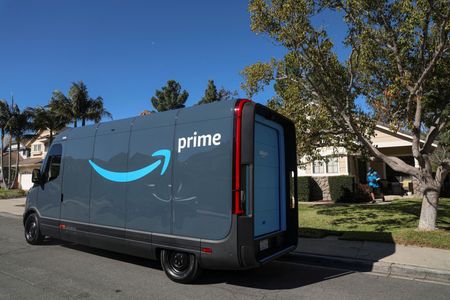 1
1 1
1

By Daniel Wiessner
(Reuters) – Amazon.com Inc must face a proposed U.S. nationwide class action accusing the company of illegally monitoring private Facebook groups that delivery drivers used to discuss working conditions, a U.S. appeals court said on Wednesday.
A divided panel of the San Francisco-based 9th U.S. Circuit Court of Appeals said an agreement that driver Drickey Jackson signed requiring him to bring work-related disputes in arbitration rather than court did not apply to his 2020 lawsuit.
The ruling means Jackson can continue seeking to represent a class of at least 800 Amazon drivers instead of pursuing his claims in individual arbitration.
Jackson in the lawsuit alleges that Amazon invaded drivers’ privacy and engaged in illegal wiretapping by creating a “social listening team” to monitor and intercept posts to private Facebook groups using automated tools.
Amazon and lawyers for Jackson did not immediately respond to requests for comment. Amazon has denied wrongdoing.
Jackson in court filings cited a leaked document purporting to show an internal social media monitoring list of 43 private Facebook groups that drivers ran in different cities.
He says Amazon used sophisticated digital tools to monitor the groups and gather information about planned strikes and protests, unionizing efforts, pay and benefits and whether researchers examining Amazon’s workforce had approached drivers.
Amazon has argued the case belongs in arbitration, citing the agreement Jackson signed. The agreement applies to “any dispute or claim … arising out of or relating in any way to … your participation in the program, or to your performance of services.”
But the 9th Circuit on Wednesday said that drivers’ use of private Facebook groups and Amazon’s alleged privacy violations did not relate to Jackson’s performance of services or implicate any provision of his contract with the company.
The decision affirmed a 2021 ruling by a California federal judge.
In a dissenting opinion, Circuit Judge Susan Graber said the case belonged in arbitration because Jackson’s claims would never have arisen if he did not have a work relationship with Amazon.
(Reporting by Daniel Wiessner in Albany, New York; Editing by Josie Kao)